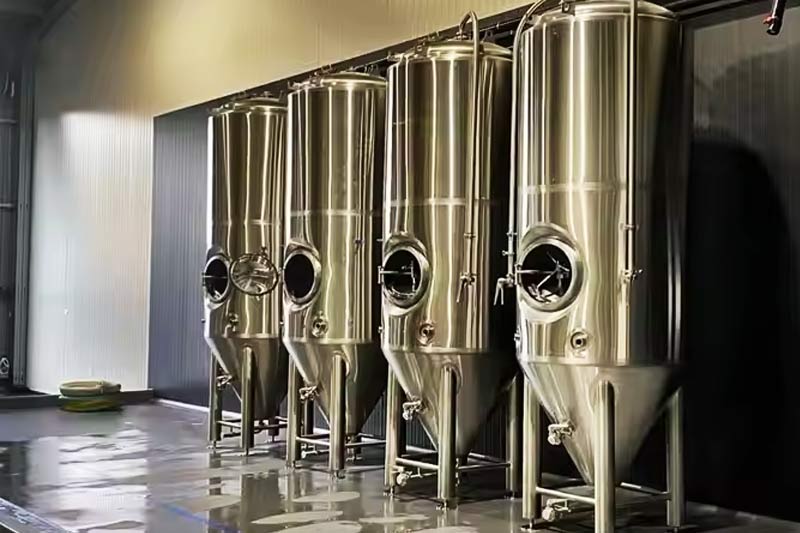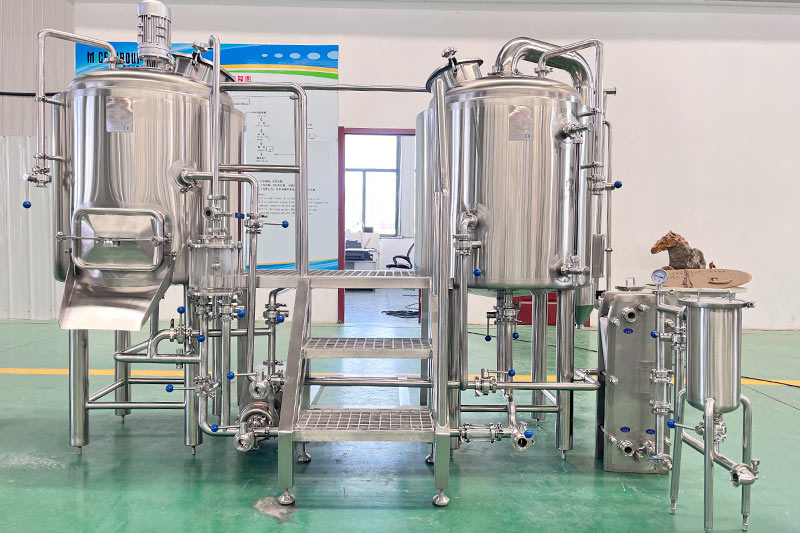Discover how the perfect combination of brewing equipment can elevate your beer-making experience. Whether you’re a seasoned brewer or just starting your journey, this guide will unveil everything you need to know about assembling the ultimate beer brewing equipment kit. Dive in to transform your brewery and craft exceptional beer every time.

Starting Your Brewing Journey: What Equipment Do You Need?
Embarking on the adventure of brewing beer at home is both exciting and rewarding. But what essential brewing equipment do you need to brew beer that rivals commercial quality?
- Brew Kettle: The heart of your brewing process. Opt for a stainless steel kettle for durability and even heat distribution.
- Fermentation Vessel: A crucial component where the magic happens—turning wort into beer.
- Wort Chiller: Essential for quickly cooling your wort to yeast pitching temperatures, reducing the risk of contamination.
- Brewing Kit Accessories: Including bottle caps, fittings, and a pump to streamline your brewing process.
At our beer equipment supplies manufacturing plant, we’ve crafted equipment kits that encompass everything you need for your home brew setup.
Choosing the Perfect Brew Kettle for Your Needs
The brew kettle is more than just a pot; it’s where your beer’s journey begins. But with so many options, how do you choose the right brew kettle for your brewery?Consider the following:
- Material: Stainless steel kettles are easy to use, durable, and resistant to corrosion.
- Size: Determine your typical batch of beer size. A larger kettle allows for brewing larger quantities or more vigorous boils.
- Features: Look for kettles with built-in thermometers and volume markings to simplify the brewing process.
Remember, investing in a quality brew kettle sets the foundation for a successful brew day.
Stainless Steel vs. Aluminum Kettles: Which is Better?
A common debate among brewers is the choice between stainless steel and aluminum kettles.
- Stainless Steel:
- Pros: Non-reactive, durable, and easy to clean.
- Cons: Generally more expensive.
- Aluminum:
- Pros: Excellent heat conductivity and more affordable.
- Cons: Can react with acidic wort if not properly cared for.
For long-term use and reliability, many brewers prefer stainless steel kettles, especially when brewing all-grain recipes.
How Does a Wort Chiller Enhance Your Brewing Process?
Cooling your wort rapidly after boiling is crucial. But why is wort important in the brewing process, and how does a wort chiller help?
- Prevents Contamination: Rapid cooling reduces the window for bacteria to infect your wort.
- Improves Clarity: Quick cooling helps proteins precipitate out, leading to clearer beer.
- Enhances Flavor Stability: Minimizes the risk of off-flavors developing.
Our beer brewing equipment includes efficient wort chillers designed to integrate seamlessly with your existing setup.
The Importance of Fermentation in Making Beer at Home
Fermentation is where sugars are converted into alcohol and CO₂, leading to the creation of beer.
- Yeast Selection: Choosing the right yeast strain impacts flavor, aroma, and alcohol content.
- Temperature Control: Maintaining consistent temperatures ensures optimal yeast activity.
- Fermentation Vessels: Using quality vessels prevents oxygen exposure and contamination.
Understanding and controlling fermentation is key to making beer at home that’s both delicious and consistent.
All-Grain Brewing: Is It Right for You?
Transitioning to all-grain brewing offers greater control over your beer’s flavor profile. But is it right for you?
- Pros:
- Complete control over ingredients.
- Ability to experiment with different grains and recipes.
- Cons:
- Requires more equipment and space.
- Longer brewing sessions.
If you’re passionate about crafting unique beers and have mastered extract brewing, all-grain brewing is the next exciting step.
Optimizing Your Home Brew Setup with Pumps and Fittings
Incorporating a pump into your home brew setup can significantly enhance efficiency.
- Benefits of Using a Pump:
- Simplifies transferring wort between vessels.
- Allows for more precise temperature control in mash recirculation.
- Essential Fittings:
- Quality fittings ensure secure connections, reducing the risk of leaks.
- Stainless steel options offer durability and sanitation benefits.
Our brewing systems come equipped with reliable pumps and fittings, making them easy to use and maintain.

Bottling 101: From Beer Bottles to Caps
After fermentation, it’s time to package your brew. Bottling your brew requires attention to detail to ensure quality.
- Selecting Beer Bottles:
- Use beer bottles designed for carbonation levels typical in beer.
- Brown bottles protect against UV light, preserving beer quality.
- Bottle Caps:
- Invest in quality bottle caps to ensure a tight seal.
- Consider oxygen-absorbing caps for extended shelf life.
- Capping Tools:
- A reliable capper is essential for sealing bottles effectively.
By paying attention to the bottling process, you’ll enjoy fresh, carbonated beer straight from your homemade beer supply.
Tips for Maintaining Your Brewing Equipment Kits
Proper maintenance of your brewing equipment kits extends their lifespan and ensures consistent beer quality.
- Cleaning:
- Thoroughly clean equipment after each use to prevent residue buildup.
- Use brewery-specific cleaning agents that are safe and effective.
- Sanitizing:
- Always sanitize equipment before brewing and bottling to prevent contamination.
- Regular Inspection:
- Check for wear and tear on hoses, seals, and fittings.
- Replace any damaged components promptly.
Our beer brewing supplies are designed for durability, but regular maintenance is key to longevity.
Enhancing Your Brewing Experience: Upgrading Your Kit
As your brewing skills grow, you may consider upgrading your equipment.
- Advanced Equipment:
- Grain mills for fresh grist.
- Temperature controllers for precise fermentation.
- Expanded Capacity:
- Larger kettles and fermenters for bigger batches.
- Automation:
- Explore semi-automated systems to streamline the brewing process.
Remember, everything you need to take your brewing to the next level is available from our extensive range of products.
Frequently Asked Questions About Beer Brewing Equipment
A: Extract brewing uses malt extract, simplifying the process. All-grain brewing involves mashing grains yourself, offering greater control over your beer’s flavor.
A: While not essential, a pump can make transferring liquids easier and more efficient, especially for larger batches.
A: Sanitation is critical. Any contamination can spoil a batch of beer, so always clean and sanitize your equipment thoroughly.
A: It’s recommended to use a dedicated brew kettle. They are typically larger and made of materials suitable for brewing, like stainless steel.
A: Use a hydrometer to measure the specific gravity. When readings are stable over a few days, fermentation is likely complete.
A: Initially, there is an investment in home brewing equipment, but over time, brewing at home can be more economical than purchasing craft beers.
Conclusion
In mastering beer brewing, the right equipment makes all the difference. From selecting a quality brew kettle to understanding the nuances of fermentation, every step is crucial. Our comprehensive range of beer brewing equipment and beer making supplies is designed to support brewers at every level.Contact us to learn more and let our products and services bring you experience like never before!
Key Takeaways:
- Invest in quality equipment like stainless steel kettles and reliable pumps.
- Understand the brewing process, especially the importance of wort and fermentation.
- Maintain your equipment to ensure longevity and consistent brewing results.
- Explore all-grain brewing to take your craft to the next level.
- We’re here to support you with everything you need for your brewing journey.
Ready to elevate your brewing experience? Contact us today and discover how our products can transform your brewery.

